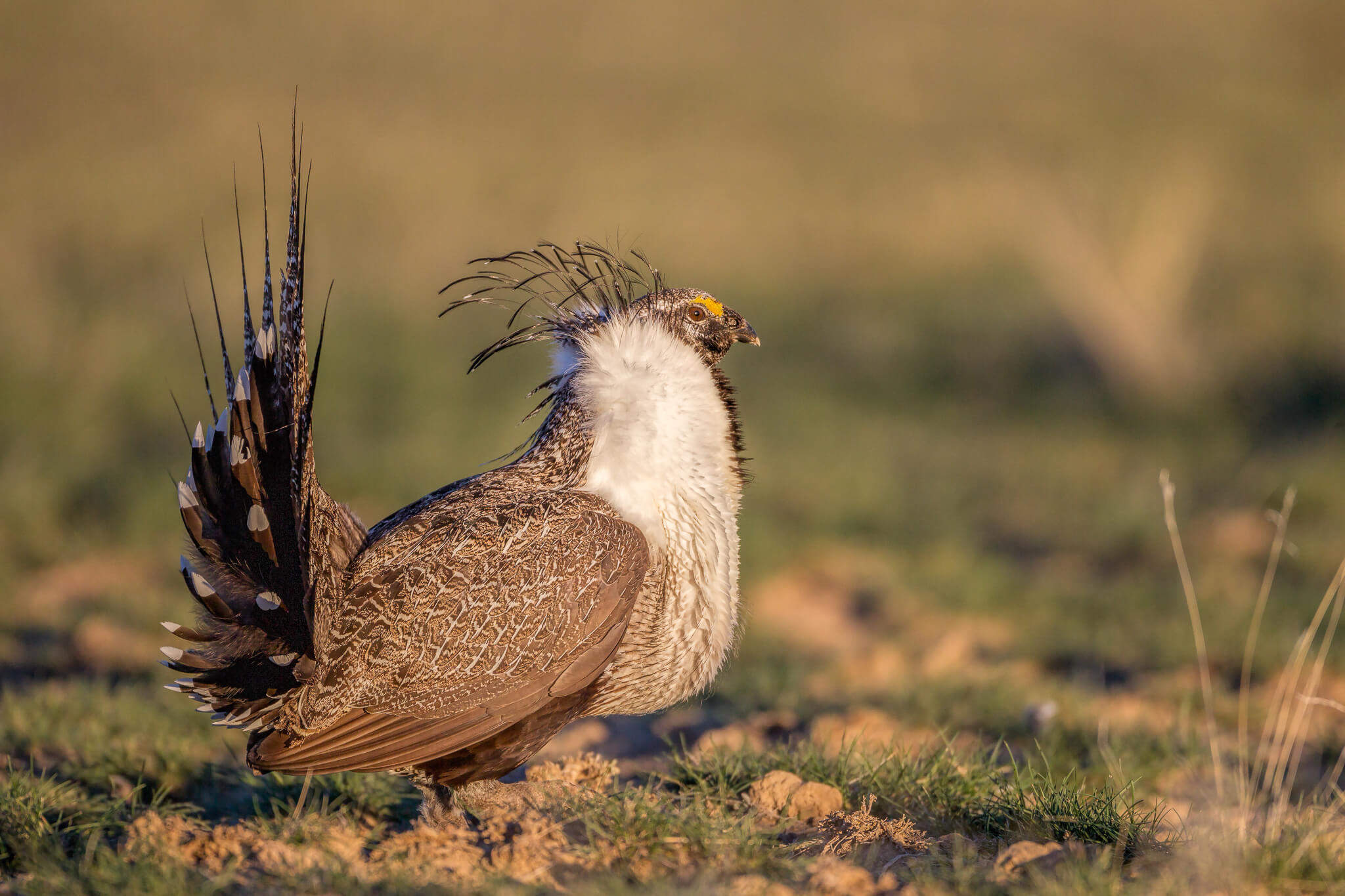Case Summary
Although the federal government declined—because of the success of state conservation programs—to list the greater sage-grouse under the Endangered Species Act, it illegally imposed Draconian rules that place vast acres of federal lands off limits to lawful grazing and oil and gas activity, which provide jobs and are vital to local communities.
Join the Fight
Since 1977, MSLF has fought to protect private property rights, individual liberties, and economic freedom. MSLF is a nonprofit public interest legal foundation. We represent clients pro bono and receive no government funding. Make your 100% tax deductible contribution today and join the fight.
Case History
The greater sage-grouse is the largest grouse species in North America with a range that stretches across 165 million acres in eleven western states: California, Colorado, Idaho, Montana, Nevada, North Dakota, Oregon, South Dakota, Utah, Washington, and Wyoming. The sage-grouse are dependent on contiguous sagebrush habitat during all seasons for breeding, nesting, brood-rearing, and wintering. Greater sage-grouse population numbers are difficult to measure because of their large-scale, camouflaged habitat.
In March of 2010, the U.S. Fish and Wildlife Service (FWS) published “12-Month Finding for Petitions to List the Greater Sage-Grouse (Centrocercus urophasianus) as Threatened or Endangered.” The FWS found that listing of the greater sage-grouse was “warranted, but precluded” by higher listing priorities. This finding prompted unprecedented state-led conservation efforts, especially in Wyoming. These efforts were successful, because on September 22, 2015, citing the success of collaborative conservation efforts, Secretary of the Interior Sally Jewell announced that listing of greater sage-grouse was no longer warranted and would be withdrawn from the candidate species list.
In September of 2015, the Bureau of Land Management (BLM) and U.S. Forest Service finalized their Wyoming Greater Sage-Grouse Land Use Plan Amendments and dismissed protests by the Wyoming Stock Growers Association (WSGA) and others. Similar plans affect California, Colorado, Idaho, Montana, Nevada, North Dakota, Oregon, South Dakota, and Utah.
Though the FWS declined to list sage grouse as endangered or threatened in Wyoming and elsewhere, the BLM and U.S. Forest Service, which manage acreage in the Mountain West for “multiple use” purposes, including grazing, adopted new plans as to how those lands are to be managed. Wyoming ranchers believe the plans will constrain use of those lands, are unnecessary, and violate federal law because they are arbitrary and capricious.
On October 14, 2015, the WSGA filed its petition seeking judicial review of two of the four records of decision (RODs)—the BLM’s and Forest Service’s Rocky Mountain RODs and Greater Sage-grouse Land Use Plan Amendments in Wyoming. The petition requests that the court set aside the challenged final agency actions. On January 13, 2016, the parties jointly moved for entry of a litigation plan and adoption of a briefing schedule. On January 15, 2016, the federal district court issued a scheduling order adopting the parties’ litigation plan and briefing schedule.
On March 4, 2016, the administrative record was lodged with the federal district court. On March 30, 2016, the Coalition for Local Governments, which previously filed its own petition for review in the U.S. District Court for the District of Wyoming in early March of 2016, moved to consolidate its case with WSGA’s first-filed case. WSGA did not oppose. On April 5, 2016, the federal district court granted the motion to consolidate. In light of the voluminous administrative record and outstanding record issues, the Coalition filed a motion to amend the scheduling order by extending all dates by 30 days, which WSGA did not oppose.
In light of the voluminous administrative record and outstanding record issues, the Coalition filed a motion to amend the scheduling order by extending all dates by 30 days. On May 5, 2016, the federal district court issued an order amending the briefing schedule. Since then, the briefing schedule has been amended several times due to administrative record issues. Most recently, on January 11, 2017, the Coalition filed the fifth motion to amend the briefing schedule, which requested that the briefing schedule be vacated until all administrative record issues are resolved in a related case. On January 12, 2017, the federal district court granted the Coalition’s motion and ordered that status reports be filed every 30 days.
On June 12, 2017, the parties filed their fifth joint status report, which advised the Wyoming federal district court that the Secretary of the Interior issued Secretarial Order No. 3353 on June 7, 2017. The Secretarial Order, among other matters, directed the BLM to review the greater sage-grouse land use plan amendments and revisions at issue in the case. The parties indicated they would evaluate the Secretarial Order and would confer as to its effect, if any. In light of Secretarial Order No. 3353, the parties filed a joint motion to stay the litigation for 90 days on July 6, 2017. On July 7, 2017, the district court granted the 90-day stay and ordered a status report be filed at the end of the 90-day period.
On August 4, 2017, the BLM submitted its “Report in Response to Secretarial Order 3353.” This report took no immediate action, but proposed possible short-term and long-term options regarding problematic provisions in the land use plan amendments and revisions. That same day, Secretary Zinke sent a Memorandum to the Deputy Secretary of the Interior directing the implementation of the short-term and long-term recommendations in the Report. Secretary Zinke further requested the Deputy Secretary to report to him “periodically, and no less than every 6 months” on progress implementing the Report’s recommendations.
On October 11, 2017, the BLM issued notice of its intent to amend its sage grouse plans and solicited comments. On November 21, 2017, the Forest Service issued a similar notice. WSGA and MSLF timely submitted comments in response to both solicitations.
Since July 2017, litigation has been stayed repeatedly, by agreement of both sides, as the agencies revisit their policies. As of 2021, the case remains paused with a 90-day stay ordered on September 20, 2021.




